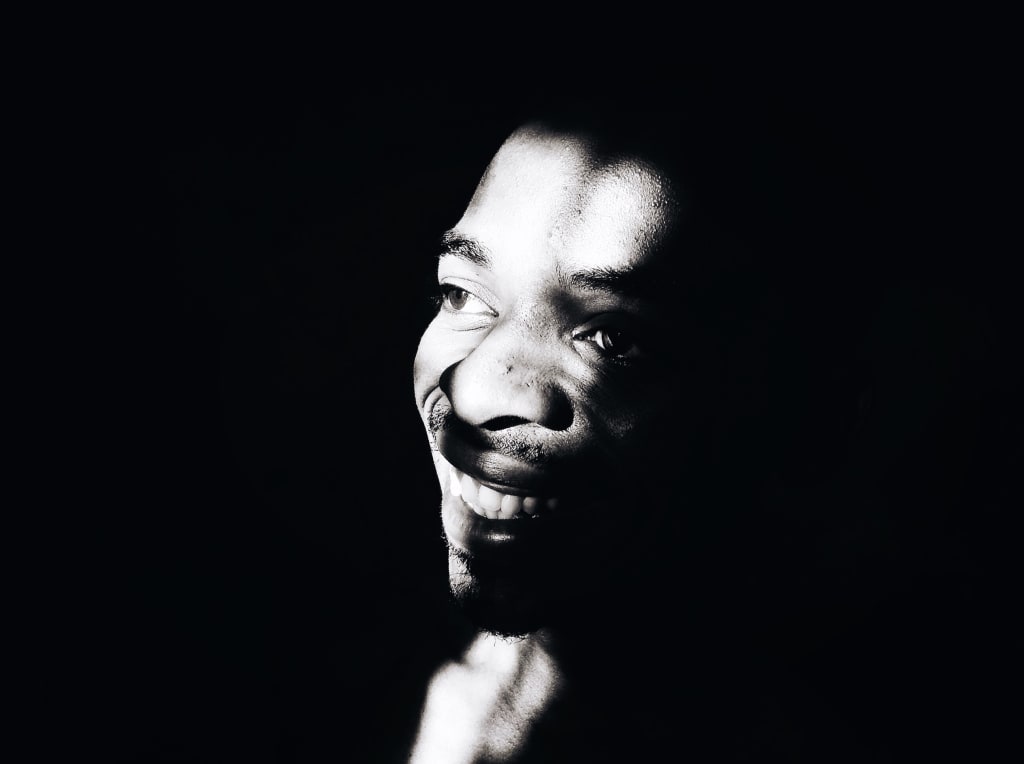
"We are who we are, and that's all we'll ever be." That's what Ronald Baker use to say. Back then, I didn't know much about him, except that we kids called him Uncle Ranny.
He was the most childlike adult I knew in my small town of Oakdale. On Sunday afternoons, after church, the kids in the neighborhood would gather in his living room to watch cartoons on his colored tv; he was the only one in the town with one. On Tuesdays, he coached the local kid's baseball team. Every month, he would drive us to the next county to play our rivals. After the game, he would buy us ice cream cones at Big Mama's, even when we lost. We lost often. He was the best coach I ever had.
All the ladies liked Uncle Ranny as well. On evenings when I swept up hair in the neighborhood salon, I heard ladies describe the things they would do to have Ranny sniff them. I didn't understand why ladies would want someone to sniff them, but I figured it was something grown folks did when they liked each other.
Looking back now, I can understand why the ladies fancied Uncle Ranny. He was a very tall man. He always wore expensive-looking clothes with leather shoes and fancy gold watches. This was a striking contrast to the flannel shirts, khaki jumpsuits, and rubber boots that most men wore in the small farming community. He had a broad smile and beautiful white teeth that complemented his deep, ebony skin. His hair was always tightly slicked back and held in place by hair gel. He always smelt like I imagined the stars on TV did.
The men, too, fell victim to Uncle Ranny's charm. They looked up to Uncle Ranny, even though he was in his early 30s, and most of them were much older than he was. They would ask his options on politics, sports, construction and sit thoughtfully listening as he spoke. He was the funniest man in Oakdale. A room would just light up when he arrived because everyone knew they were in for a great time.
Everyone loved Uncle Ranny. Everyone except Old man Nathan Brown. Mr. Brown was the old man who owned the only grocery store in the town. He was always grumpy and lashing out at kids who would come into his store, unattended, to stare at candy they would later leave without buying. In Mr. Brown's eyes, this was an unforgivable sin. Later, when the kids returned, he would be ready with his broom to chase them back into the dusty town square. Shouting and screaming as he did. Mr. Brown never said why he disliked Uncle Ranny.
"There is something not right with that Ranny Boy," he would say, in quiet whispers, to anyone he thought would listen. At the time, no one listened to old grumpy Mr. Brown.
Every few weeks, Uncle Ranny would drive to the city in his White Lincoln. He would leave for days, even weeks. Then he would come back with some new clothes and gadgets he had acquired. He would be welcomed back with open arms. No one seemed too concerned about where he had been or what he had been doing. If they did, no one asked. At least not us kids. One day after practice, I asked Uncle Ranny why he left so often. He was silent for a while as he looked off into the distance. I stood waiting for an answer, and after a few minutes, he turned to me and laughed before telling me not to worry about it. I soon forgot about it because he took us for ice cream that afternoon, and we didn't even play a game.
One day, in the late summer of 1998, our community got the news that Uncle Ranny had died. He had been gone for more than 6 weeks; as usual, no one in the town knew where he was or showed concern that he was gone for that long.
Before Uncle Ranny, I had never had anyone close to me die. So one day, as I was helping my mother shell peas, I asked, "Mommy, what does it mean when someone dies?"
"Well, honey. Death is the door to the second half of our existence," she whispered these words in a hushed voice, then left me to finish the bucket of peas by myself.
I still didn't quite understand, but my probing didn't produce much else. I had to simply accept that Uncle Ranny had left us behind to start the next phase in his life. It was like all the other times before when he got in his white Lincoln and went, except this time, he would never return.
He was in the city when he died, and we had to wait 3 days for his body to reach Oakdale. Joe was the only family he had. The only family we knew of. Joe was an old blind man who lived in a small wooden cabin behind Uncle Ranny's house. To this day, I am not sure of the relationship between Ranny and Joe. Everyone just assumed he was his grandfather because the man was very old. Joe didn't have any money, so the town offered to bury Uncle Ranny.
The funeral was a highly anticipated event—everyone, dressed in their best suits and dresses, piled into the small church on the hill. The crowd was so big that many people had to sit outside on benches made of tree trunks and stumps. Pastor Owen did a sermon on resting in peace.
The choir of primarily old ladies cried their way through a mournful ballot as the casket was taken down the aisle to the gravesite. As they lowered the coffin into the freshly dug hole, I cried for the first time. I didn't care that he was in the next phase of his life. I hated that he had left us to go on his new adventures, again, without saying goodbye. Especially since this time, he was not going to come back. I was ten when Uncle Ranny was laid to rest in the graveyard of New Life Baptist Church. It would be years after his death that I would uncover the truth about the stranger that I had loved.






Comments
There are no comments for this story
Be the first to respond and start the conversation.